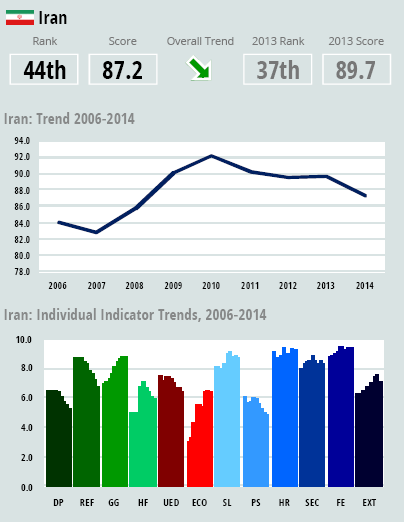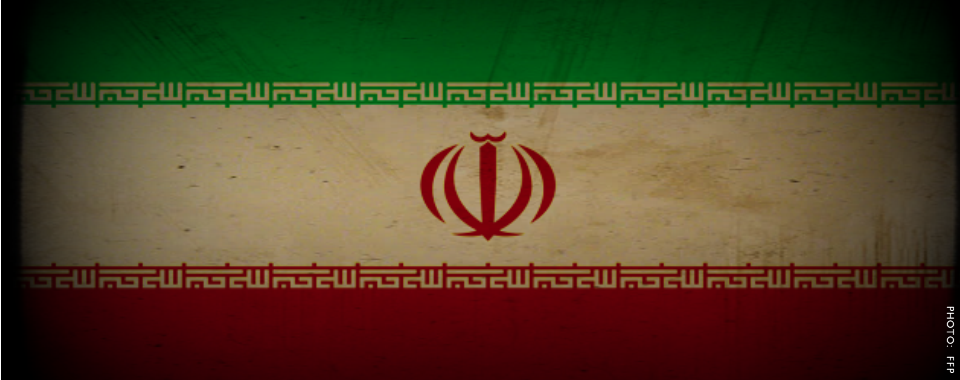BY FELIPE UMANA
 Iran, despite its hefty domestic and international political issues and obdurate theocratic government, has taken several gradual but important steps to improve its standing on the world stage over the past year. These improvements, which occurred in all but one of the twelve indicators analyzed, have made it the 2014 Fragile States Index’s most improved country.
Iran, despite its hefty domestic and international political issues and obdurate theocratic government, has taken several gradual but important steps to improve its standing on the world stage over the past year. These improvements, which occurred in all but one of the twelve indicators analyzed, have made it the 2014 Fragile States Index’s most improved country.
Because of an increase in total health care spending and guarded progress in performance and rapid and adequate emergency responses to two April 2013 tremors, the Demographic Pressures indicator has improved by 0.2 points. However, air pollution rates have risen and food shortages have presented numerous challenges for the Rohani administration.
Global sanctions, hyperinflation, and high levels of unemployment have mitigated greater economic growth in Iran. In spite of these challenges, Iran’s sizable market and greater desire to engage with global actors has slightly improved the country’s Economy indicator.
State Legitimacy and Security Apparatus indicators saw a decrease of 0.2 and 0.3 in a positive direction respectively, as Hassan Rohani’s moderate-leaning presidency has made efforts to minimize civil unrest and some internal political conflicts.
International economic sanctions are directly affecting Tehran’s ability to develop the country economically and socially. Greater global engagement and movement towards fewer sanctions have, however, bettered the country’s External Intervention score.
